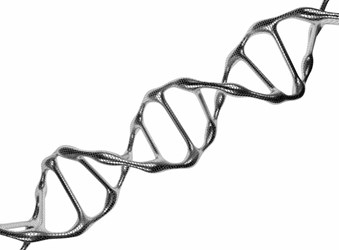Genotyping Service Offer Scientists Turn-Key Research Platform

By Christine Kern, contributing writer

Service enables complete, cost-effective genotyping that informs participants.
Personal genetics company 23andMe has announced the launch of its new Genotyping Services for Research (GSR) platform, providing scientists with an end-to-end service to incorporate genetic information into their studies.
23andMe’s GSR is designed to simplify the genotyping process and reduce costs for academic researchers recruiting for cohorts. GSR will be used to help generate and study new genetic data and will enable researchers to give information back to the research participants in the form of 23andMe Personal Genome Service reports. Typically, most researchers fail to implement reciprocity-based reasons for trial participation and many authors are not aware of alternatives to providing post-trial access.
“The 23andMe GSR platform simplifies the genotyping process and allows any researcher with an IRB-approved study to incorporate genetics into their research, regardless of their own genetics expertise,” said Ruby Gadelrab, 23andMe’s vice president of commercial marketing. “Typically, research studies don’t return any data to the participants. We’ve enabled researchers to give results back to participants in the form of the 23andMe experience, which we believe is a huge advantage in recruiting. This is the way research studies of the future will be conducted, as evidenced by the desire of those leading the Precision Medicine Initiative to return results to participants.”
A number of collaborators have signed on to use 23andMe’s GSR, including the University of California, San Diego, Washington University, and McMaster University, engaged in studies ranging from smoking cessation, cognitive impairment in glioma patients, to addictions and psychiatric disorders.
“Partnering with 23andMe permits us to both accelerate the pace of our work and reduce infrastructure costs. Furthermore, it allows us to give back to our study participants who are interested in their genetic ancestry and health risks. It’s a real ‘win-win’ for us,” said James MacKillop, PhD, Director, Peter Boris Centre for Addictions Research, McMaster University/St. Joseph’s Healthcare Hamilton.
The end-to-end service includes non-invasive sample collection, DNA extraction, genotyping (arrays, reagents and sample processing), data and project tracking for researchers, and return of 23andMe reports to participants.
“The GSR platform will now allow us to collect genetic information directly from patients participating in medical research studies that use mobile technology. We’re hopeful this data can accelerate breakthrough discoveries for complex diseases such as multiple sclerosis,” said Daniel Pelletier, MD, vice chair of research, Department of Neurology at the Keck School of Medicine at the University of Southern California.
